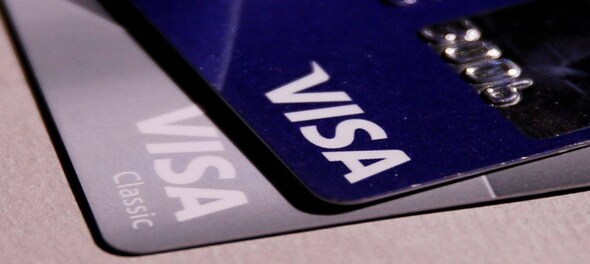
Payments giant Visa on Friday, May 5, said the company has introduced CVV (cardholder verification value)-free online transactions for domestic tokenised credentials in India.
Live TV
The move is in line with the Reserve Bank of India's guidelines on tokenisation, which came into effect last year, the company said in a press release.
As the first payment network to introduce CVV-free online transactions across the merchant ecosystem, Visa aims to make domestic card-not-present (CNP) tokenised transactions faster while ensuring safer and more secure transactions for its consumers.
Ramakrishnan Gopalan, Head of Products, India and South Asia, Visa, said the company has always strived to ensure a superior payment experience, coupled with minimum friction and best-in-class security.
Card-on-file tokenization (CoFT) is a process through which the actual details such as the 16-digit number, expiry date on a credit or debit card are replaced by a virtual code which is unique for that card, merchant point where it is to be used and the token requestor (or the card user).
With the accelerated use of tokens, merchants who use tokenisation for transactions on Visa cards, need not collect the CVV2 anymore for domestic online transactions originating on tokenised credentials, as this is already taken care of when the card was first tokenised, he added.
CVV2, simply put, is the three-digit number on the back of a physical debit or credit card. Collecting CVV2 remains mandatory during initial token provisioning.
Going forward, merchants and acquirers can stop collecting CVV2 during subsequent token-based domestic CNP transactions for evolved, safe, and secured payments, the company said.
Tokenised transactions are two-factor-authenticated and use an encrypted token instead of actual card details. In addition, they use a token authentication verification value (TAVV) cryptogram for cardholder-initiated transactions.
Visa was the first network to provide card-on-file tokenisation services in India. As of March 2023, Visa has issued over 250 million tokens in India.
Since the implementation of the guidelines in October 2022, tokenisation has seen rapid adoption across the ecosystem and token transactions have constituted a majority of domestic card-not-present (CNP) transactions in India.



